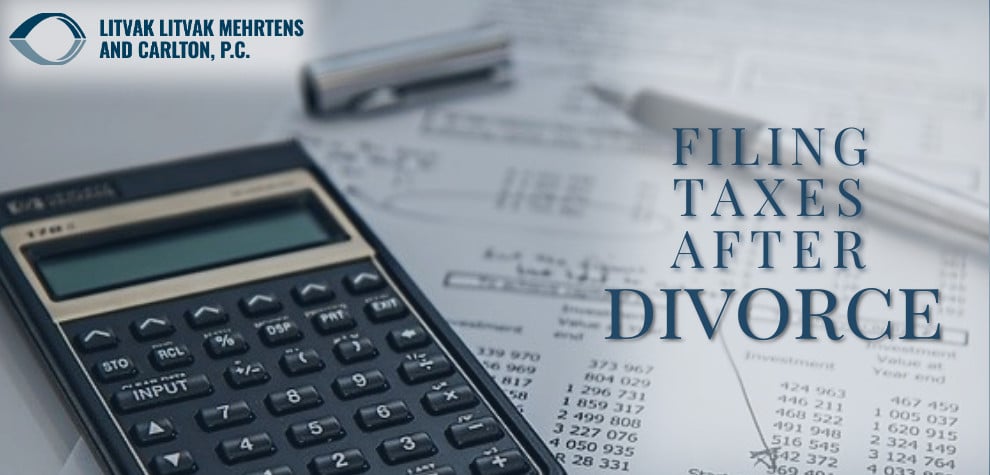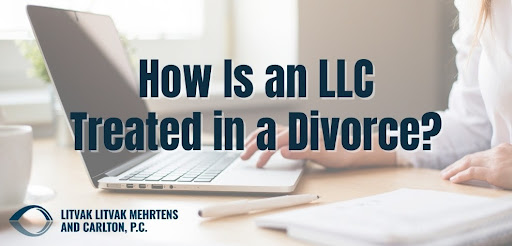If you’re going through the process of a divorce, you have a lot running through your mind. You also probably have plenty of questions. One of these questions might be what to do about filing taxes after divorce. Filing taxes could also very well be the last thing on your mind. Either way, we’re here to help.
The family law attorneys at Litvak Litvak Mehrtens and Carlton, P.C. are highly experienced in matters such as divorce. Not only can we help you through the initial process, but we can also assist in matters following the divorce. In this post, we’ll help you to understand how to go about filing taxes after divorce.
How Do I File My Taxes If I Got Divorced?
How you file your taxes following a divorce depends on when your divorce became official. The last day of the tax year occurs on December 31st. If your divorce was final on or before this date, you are not eligible to file a joint tax return. However, if your divorce became final on the first day of January or any time after, you’re still able to file for a joint tax return. Filing for a joint tax return often results in greater tax savings, like twice the standard deduction as well as other benefits.
For those who are no longer able to file a joint return following a divorce, there are still other ways to save money. One of these is if you file as the head of household. This filing status is generally reserved for the unmarried taxpayer who claims dependents. They also must pay for more than half of housing costs. Dependents are most often children, but can also be an elderly parent or relative under their care.
If you do wish to file for head of household, remember that only one of the two parents can file under this status. This also means that only one can claim the children as dependents. Whoever does so is generally settled upon as part of the divorce proceedings.
If you get remarried by the end of the next tax year, you may also receive a joint return when filing taxes after divorce.
Do You Have To File Taxes Together If You’re Divorced?
If you’re able to file a joint return for the previous year but you do not wish to, you aren’t required. You can choose to file under the “married filing separately” status.
If you are still considered married, it’s encouraged that you file jointly. It can be beneficial for you in that it gives you greater tax breaks and a higher deduction. However, it also means you are jointly liable. So if your ex-spouse doesn’t pay their due taxes based on their own personal income, the IRS will come after you to pay.
The IRS still considers you married if your divorce decree was not made final by December 31st. Even if you’re separated for a while or if you filed for divorce during the year, if the decree was not issued, you’re still married.
So, to answer the question, if you got divorced before or on the last day of the year, you must file separately. If you aren’t yet divorced by the end of the tax year, you have the option of filing separately or together.
How Long Do You Have To Be Divorced To File Single On Taxes?
There is no length of time that must pass before you file as single on taxes. As mentioned before, it depends on your marital status at the end of the tax year. Your marital status on December 31st determines your filing status for the rest of the following year.
Even if you’re still married by the new year, you may file as single on your taxes if you so wish. There are a few reasons someone may do this. One of these is to separate tax liability from your spouse. While the joint return might have greater deductions, it also makes you liable for the other person. Both parties are responsible for the entirety of the return. If you’re aware that your spouse is overplaying deductions or excluding income on their return, you should file single.
How Does Divorce Affect Taxes?
Marriage and divorce both play a significant role in taxes and the kind of returns you receive. Filing taxes after a high asset divorce in Denver can be especially complicated. When you’re married and filing joint returns for taxes, you receive many different benefits. Some of these might include the following credits and deductions:
- Adoption credit
- Child and dependent care tax credit
- Credit for the elderly and/or disabled
- Student loan interest deduction
- Deduction for expenses of college tuition
- Earned Income Credit
- American Opportunity Credit
- Lifetime Learning Credit
- Tax-free exclusion of U.S. bond interest
- Tax-free exclusion of Social Security benefits
- Roth IRA contributions
- Traditional IRA deductions
- Deduction of net capital losses
As soon as you lose the option to file a joint return, you limit or altogether lose these tax breaks and credits. Everybody has a different tax situation, which makes it impossible to say what’s the best option for divorced couples. Often though, if you’re still able to file a joint return, you should.
Can You Deduct the Costs of Your Divorce?
During your settlement, your divorce attorney already considered any and all tax ramifications. But what about the legal fees needed to set the terms of spousal maintenance and child custody? Are you able to deduct those from your taxes?
Unfortunately, the answer is no. Court costs related to divorce or generally any other legal matter cannot get deducted from tax returns.
There is the possibility that the Tax Cut and Jobs Act will provide us this option at the end of 2025. It could also be possible that the tax breaks provided now could become invalid with the Act’s renewal. Without knowing what the future of tax deductions will look like, you should assume that you will not receive any miscellaneous deductions from your divorce.
Contact Divorce Attorneys Litvak Litvak Mehrtens and Carlton, P.C.
If you have any other questions about filing taxes after divorce, you need Litvak Litvak Mehrtens and Carlton to help guide you through the process. Contact our skilled family law attorneys to discuss your case today. Schedule a consultation by calling our Denver office at 303-951-4506 or complete our online intake form here.






